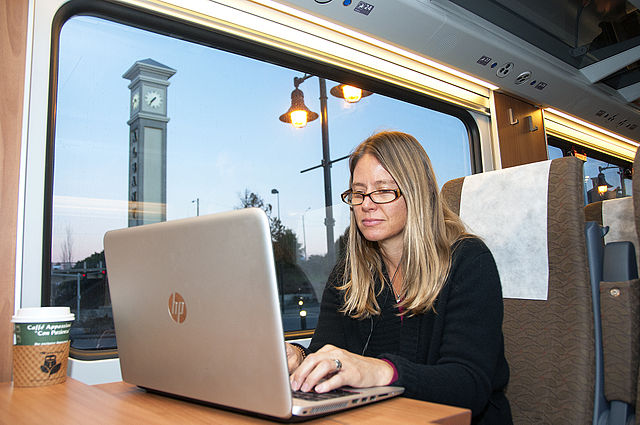According to the New York Times, in May 2016 18.8% of over 65s held a job. A further study by Age UK found that the number of people aged over 65 is expected to grow by 48% to 16 million by 2025. However, over 50s are the age group least likely to find a job within a year of becoming unemployed. With their experience and wealth of knowledge, why aren’t over 50s more in demand?
It seems ageism is still accepted in some work places, and although steps have been taken to banish ageism from the workplace, more needs to done in the next few years as the number of older workers increases. However, for over 50s themselves, a change of scene could help rejuvenate their later career.
Some over 50’s might be put off by the idea of alternative workspaces, however research has found that as they age, co-workers work less, are become more flexible. Flexible working, usually associated with millennials, could actually suit older workers more.
Ageism means more people are self employed
According to Age UK, ageism is discrimination or unfair treatment based on a person’s age. It can impact on someone’s confidence, financial situation, quality of life and job prospects.
As businesses favour younger and cheaper worker, this presents a problem to over-50s not yet ready to retire. Age discrimination is a problem for the growing numbers of aging boomers who want or need to continue working. Though while more are choosing to continue working, many of them are becoming self-employed.
The Kauffman Foundation’s annual Entrepreneurship Index shows the shift to entrepreneurship and self-employment by older workers, suggesting ageism in traditional offices is leading to a rise in older workers becoming self-employed.
Flexible working suits over 50s
According to Age UK “Flexible working makes an extended working life much more attractive.” Workers in their 50s might choose to wind down the time spent at the office by spending some time working remotely, and the rest in a serviced office or co-working space. Flexible working could suit older people who aren’t ready to retire just yet but still don’t want to be stuck in the office 40 hours a week.
The Prince’s Responsible Business Network found that by age 55-59, nearly 40% of all those in work want to reduce their working hours. Implementing agile work presents an opportunity to re-engage and motivate this crucial demographic who may leave the workforce altogether.
Many office space providers like Regus, i2 Office and Workspace provide a mix of flexible work solutions, with desk space you can hire on a week-to-week basis or, for those with less predictable schedules, an access pass that let’s you use nationwide shared business lounges on a needs-basis.”
Coworking isn’t just for startups and young entrepreneurs
Flexible working, using serviced offices and coworking is often seen as a young person’s game. Most coworkers are in their mid-twenties to late thirties, with an average age of 34.
For self-employed over-50s the idea of working from home might seem a lonesome prospect. However, working from business lounge or serviced office or desk space is a great way of working. It can even help elderly people network whilst providing all the amenities provided by a traditional office.
Older coworkers are more likely to be self-employed freelancers. They are more likely to use a flexible desk, live closer to their coworking space, and spend less time on each project, therefore a coworking space and serviced office could be ideal for those coming to the end of their careers.







